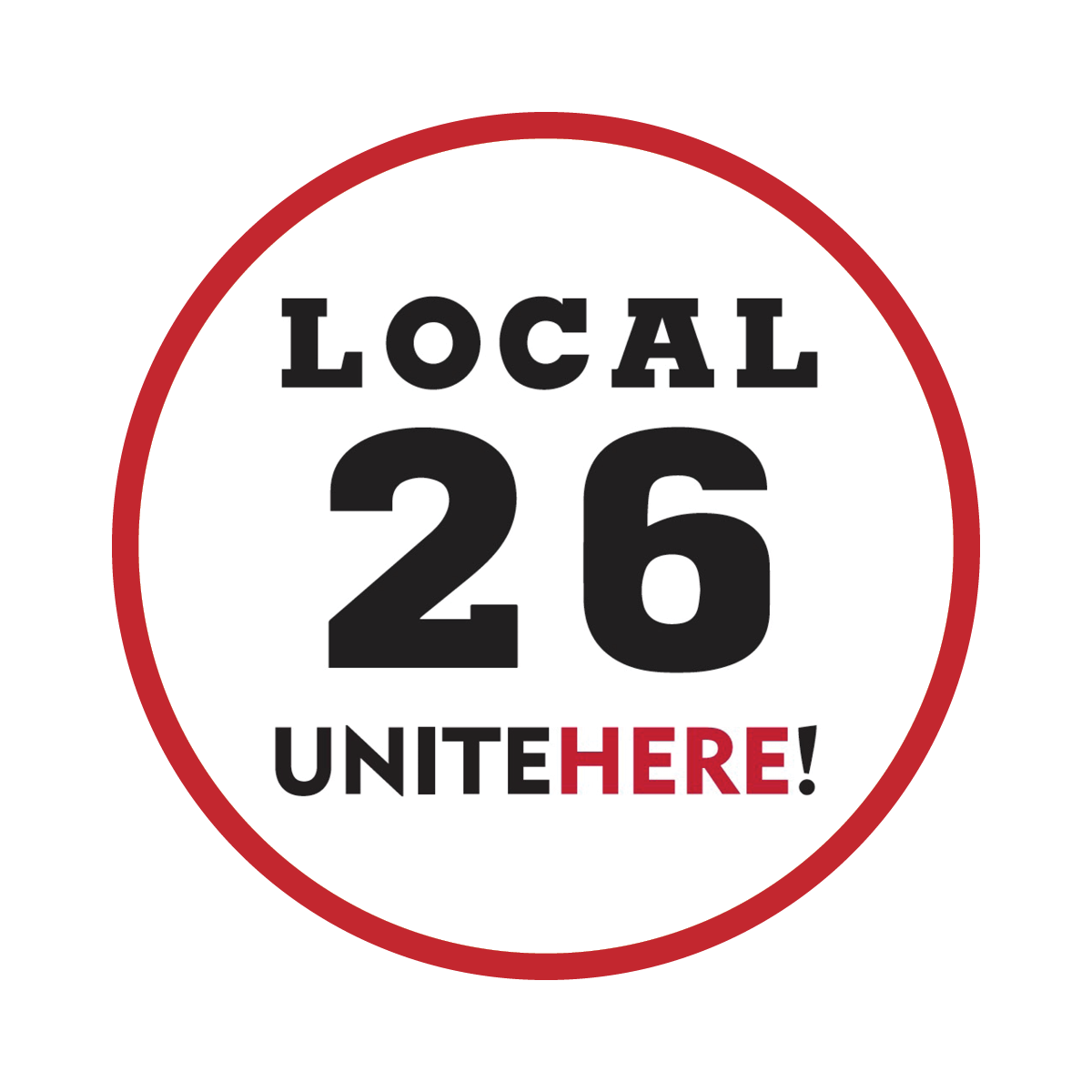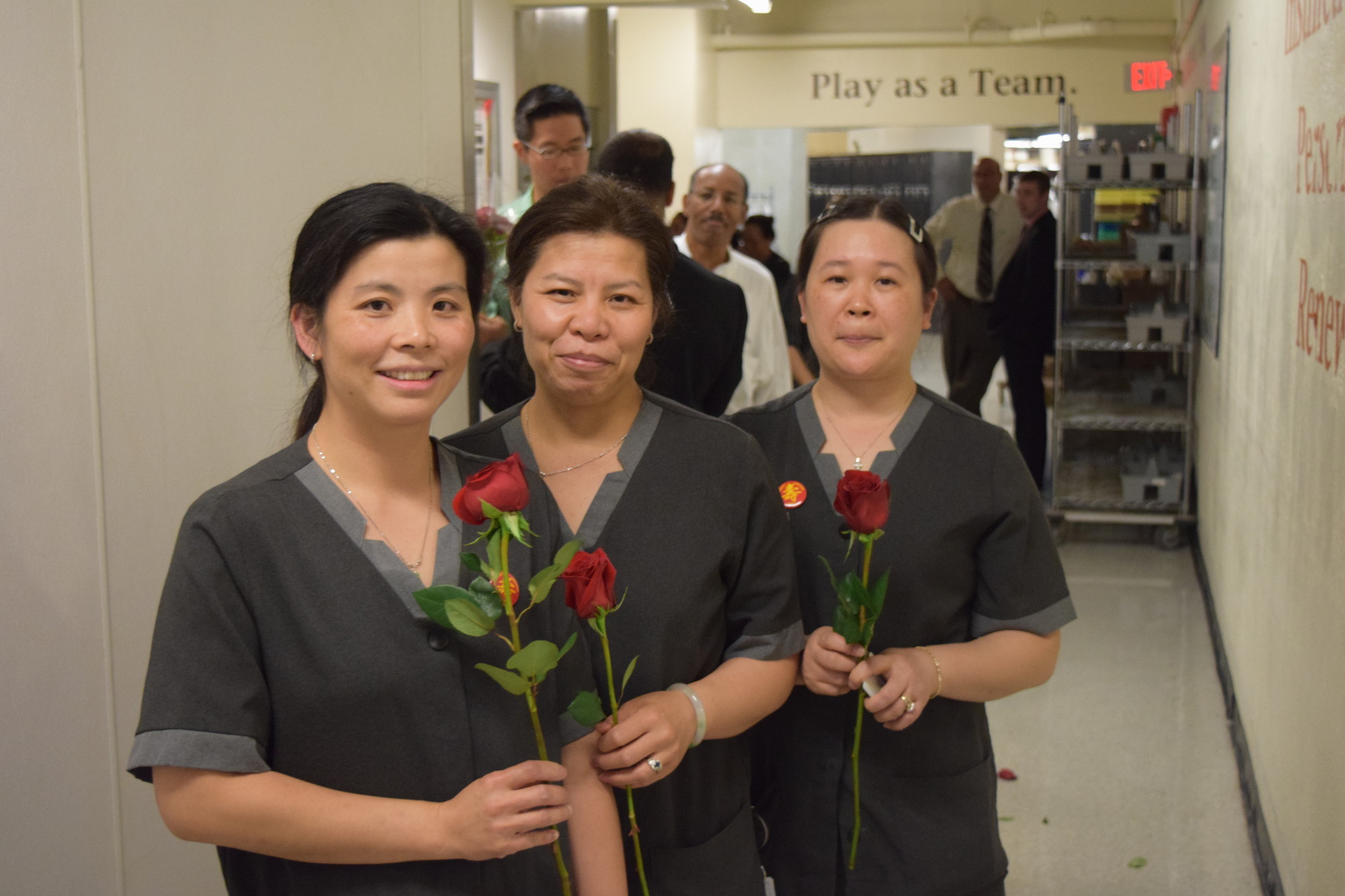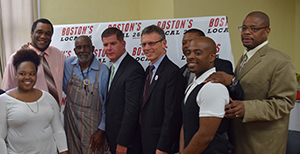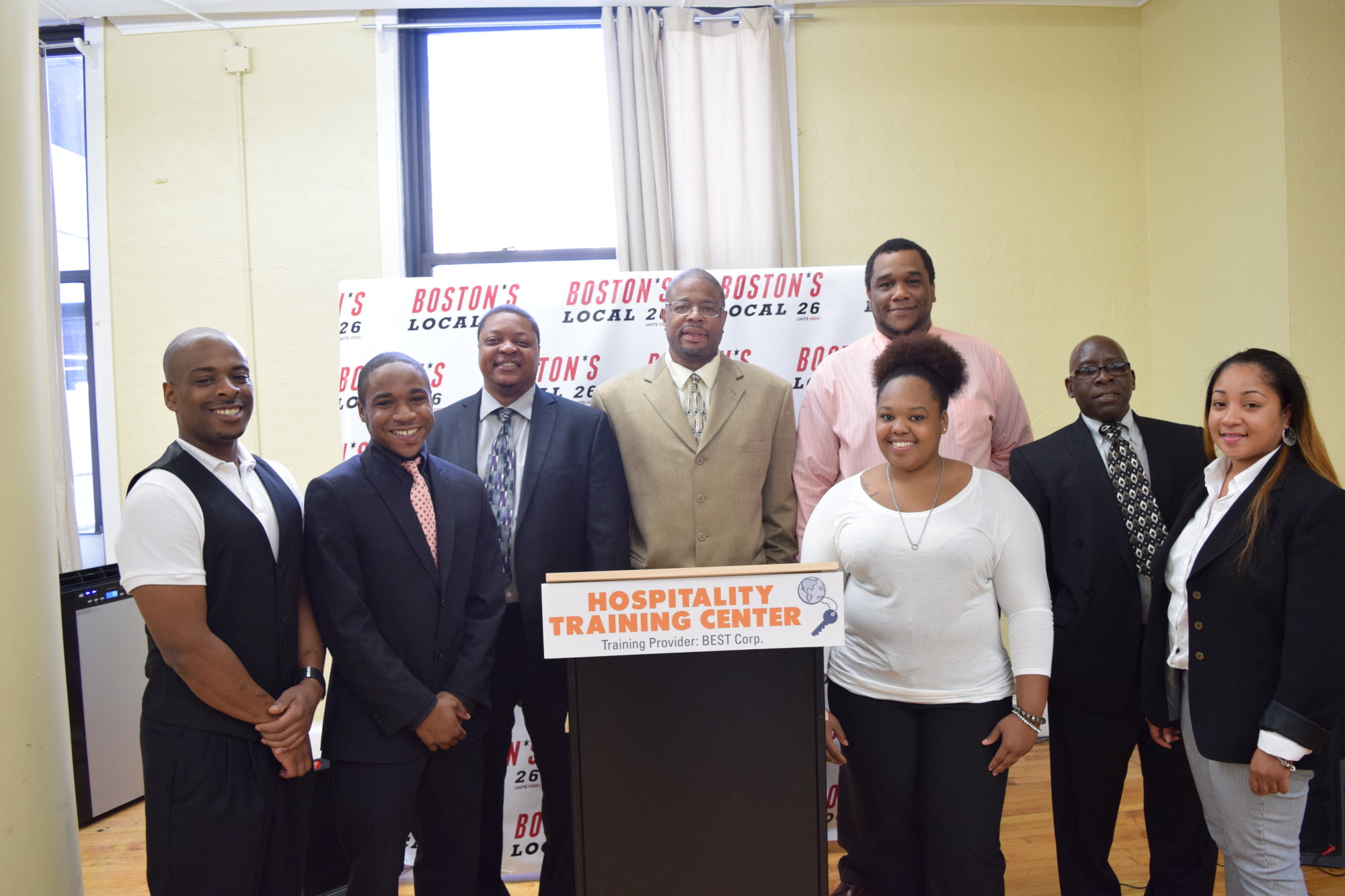 Frantically making an outdoor bed while a hotel maid taunted them via loudspeaker, dozens of America’s best and brightest took turns tucking, folding, and failing in front of a crowd of classmates outside Harvard Science Center on Monday.
Frantically making an outdoor bed while a hotel maid taunted them via loudspeaker, dozens of America’s best and brightest took turns tucking, folding, and failing in front of a crowd of classmates outside Harvard Science Center on Monday.
“I did it once, and I’m already sweating,” said Alexis Lewandowski, a freshman studying economics. When she was done, the bed barely passed inspection.
Here at America’s intellectual epicenter, complicated algorithms are easier to find than a well-made bed. On Monday, a stunt organized by groups supporting a unionization push at a Harvard-owned hotel near the Charles River challenged all who happened by to prove that they could still make good on mom’s old request: Make the bed for once.
Giving lessons and occasional grief was Emma Perdomo, a 10-year employee of the Hilton DoubleTree Suites hotel, who was among the workers there who inquired about unionizing in March 2013. The university declined to get involved or to guarantee a fair process for a vote, and the disagreement has been simmering ever since.
A university spokeswoman forwarded a letter leaving the labor decision to Hilton, which manages the hotel; DoubleTree by Hilton is one of several brands under the Hilton Worldwide umbrella.
Every day, Perdomo, 54, makes about 30 beds like the one that showed up on a wooden platform in the middle of campus Monday.
In order: flat sheet, flat sheet, blanket, flat sheet, duvet. Tuck everything in so tight that a horse couldn’t kick its way out of bed, and you are done once you throw on the pillows. Do this less than once a year, and you’re a typical college student. “I’m gonna get back into it that night anyway,” explained Kareli Osorio, a freshman studying folklore and mythology. (Bed status on Monday at noon: unmade.) “I just throw the covers over,” said Lewandowski (unmade).
Donning gray hotel maid shirts, Lewandowski and her friend, Shantell Williams, worked up a legitimate sweat trying to get everything straight and tucked, though in fairness, few beds are set on platforms in the hot sun, surrounded by food trucks, gawkers, and the assembled media. Perdomo gave them a generous C+.
Like many of the future Masters of the Universe who happened by Monday, Lewandowski may not have to worry about making her own bed for long.
“I can build and investigate swarm optimization algorithms but I really don’t know how to make my bed,” said junior Alex Chen, who is a member of the Student Labor Action Movement, or SLAM, on campus.
“Too slow! Too slow!” Perdomo warned again. Over the course of about 90 minutes, one pair managed to earn a B from Perdomo, though she spent most of their session talking with a reporter and did not notice that they had totally blown it with the duvet cover.
On Monday, it was always the duvet cover, unless it was the sheets. Many hotels do not use fitted sheets, a cost-saving measure that streamlines inventory and laundry systems, and results in more even wear over time. But how to fold and tuck the various sheets requires its own optimization algorithm.
DoubleTree lobby worker Nelson Labor came to show solidarity with the cleaning workers. Watching Osorio with alternating exclamations of glee and horror, he finally lent a hand, explaining that the duvet actually goes inside the duvet cover.
Their ragged bed was finally made. “It’s good,” he lied. “It looks good.”




